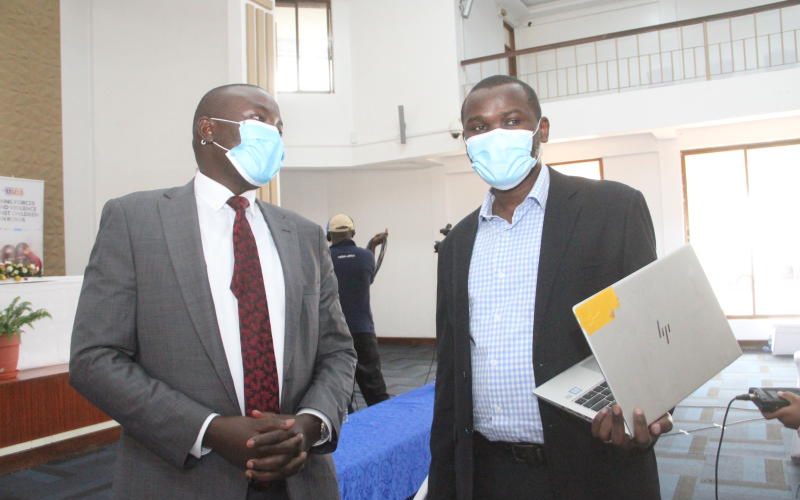
More children risk losing their childhood by the time Covid-19 pandemic is brought under control unless remedial measures are quickly taken, a new report warns.
The report follows a study jointly by the Kenya National Commission on Human Rights (KNHCR) and the Joining Forces Alliance which brings together six different non-state actors.
In August, a total 6,650 children were interviewed through the phone with a follow-up in October involving 564 children. The researchers also reviewed government reports which touch on children’s rights, health, nutrition, protection and education.
The study established a 40 per cent drop in vaccination of children under the age of one between March and April this year. Don Bonyo, the Joint Forces Alliance Head of Secretariat pointed out that this was occasioned by the restrictions that were put in place which hindered movement.
Particular interest
The study established that a significant number of children could be living with undiagnosed tuberculosis and are at a higher risk of contracting Covid-19. Of particular interest was the poor state of quarantine and isolation centres which lacked sufficient bedding, water, food and cleaning supplies.
“Notably, some of quarantine facilities have not been friendly to children,” said Bonyo.
He said the future with Covid-19 even looks gloomy as access to essential child health services at the community level was greatly hampered during the pandemic due to inadequate health workforce.
Poor nutrition was amplified during the past few months especially among children who relied on school feeding programmes.
“As at July 2020, it is estimated that approximately 1.3 million people are acutely food insecure and in need of humanitarian assistance. The number has reduced as compared to 2019, when the country had approximately 2.6 million food insecure people. Notably, most of these people are children,” said Bonyo.
Provision of food to children is now largely determined by the income of the parents of caregivers, which has since been affected by the pandemic.
Education has been hampered with only half of learners able to access learning from home. An estimated 17 per cent of children could not access any form of learning after the closure of schools which translated into them being left behind.
“Access to the learning content by children living with disabilities ranging from those with visual and hearing impairment, to those with mental challenges has been a bigger challenge...,” said Samson Omondi, senior human rights officer with KNHCR.
Police reports also show that gender-based violence increased exponentially between January and June this year.
“According to the State Department for Gender, 71 per cent of the gender based violence cases reported were female victims and that the main perpetrators were youthful male between ages 18-33 years.”
Child neglect, abandonment and custody were the top three forms of violence against children with an average of 239 cases of child neglect reported each day.
Report also notes that children lack essential protective gear like masks which exposes them to infection.
 The Standard Group Plc is a multi-media organization with investments in media platforms spanning newspaper print
operations, television, radio broadcasting, digital and online services. The Standard Group is recognized as a
leading multi-media house in Kenya with a key influence in matters of national and international interest.
The Standard Group Plc is a multi-media organization with investments in media platforms spanning newspaper print
operations, television, radio broadcasting, digital and online services. The Standard Group is recognized as a
leading multi-media house in Kenya with a key influence in matters of national and international interest.











